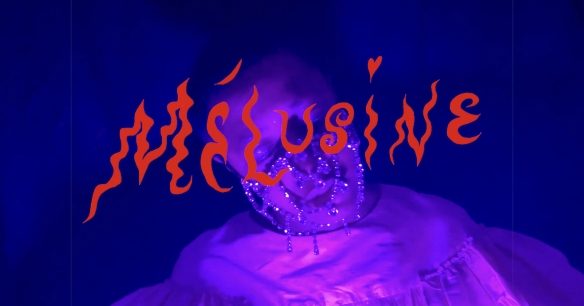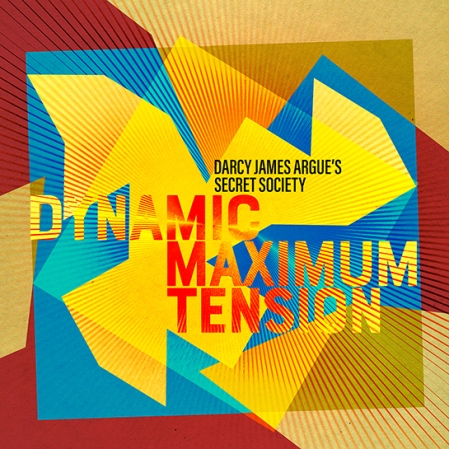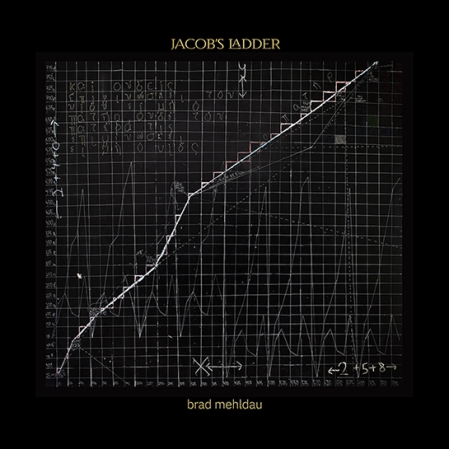Cécile McLorin Salvant’s album Mélusine is a mix of five originals and interpretations of nine songs, dating as far back as the 12th century, mostly sung in French along with Occitan, English, and Haitian Kreyòl. They tell the folk tale of Mélusine, a woman who turns into a half-snake each Saturday after a childhood curse by her mother. Mélusine agrees to marry Raymondin on the condition that he never see her on Saturdays. He agrees but is later convinced by his brother to break his promise, piercing his wife’s door with a sword and finding her naked in the bath, half snake, half woman. When she catches him spying on her, she turns into a dragon and flies away, only to reappear every time one of her descendants is on their deathbed.
Cécile McLorin Salvant’s new album, Mélusine, is due March 24, 2023, on Nonesuch Records; vinyl is due May 19. Mélusine features a mix of five originals and interpretations of nine songs, dating as far back as the twelfth century, mostly sung in French along with Occitan, English, and Haitian Kreyòl. The album track “D’un feu secret,” Michel Lambert’s 1660 air de cour, is available today, along with an animated video by Amanda Bonaiuto that may be seen below. Mélusine follows last year’s label debut, Ghost Song, which has received two Grammy nominations and tremendous critical praise, including spots on best albums of 2022 lists from the New York Times and NPR, among others.
The new album’s songs tell the story of the European folkloric legend of Mélusine, a woman who turns into a half-snake each Saturday as a result of a childhood curse by her mother. Mélusine later agrees to marry Raymondin on the condition that he never see her on Saturdays. He agrees but is ultimately convinced by his brother to break his promise, piercing his wife’s door with his sword and finding her naked in the bath, half snake, half woman. When she catches him spying on her, she turns into a dragon and flies out the window, only to reappear every time one of her descendants is on their deathbed.
“I think what I try to do is more akin to revealing secrets than telling stories,” Salvant says. “Revealing secrets is also the snake’s role in the Garden [of Eden]. The snake brings secrets, knowledge, pain, and mayhem.”
She continues, “The story of Mélusine is also the story of the destructive power of the gaze. Raymondin’s sword pierces a hole into her iron door. His gaze does too. The gaze is transformative and combustible. She sees that he is secretly seeing her. Her secret is revealed. This double gaze turns her into a dragon. She can now breathe fire.”
Salvant, whose parents are French and Haitian, says Mélusine is also “partly about that feeling of being a hybrid, a mixture of different cultures, which I’ve experienced not only as the American-born child of two first generation immigrants, but as someone raised in a family that is racially mixed, from several different countries, with different languages spoken in the home.”
“‘Dame Iseut,’ the last song of the album, was translated into Haitian Kreyòl with my dad from the Occitan, which is an ancient language spoken in the south of France. My grandmother spoke a little, and her brother used to teach it,” Salvant says. “This album combines elements from French mythology, Haitian Vaudoo, and apocrypha.”
Cécile McLorin Salvant, a 2020 MacArthur Fellow and three-time Grammy Award winner, is a singer and composer bringing historical perspective, a renewed sense of drama, and an enlightened musical understanding to both jazz standards and her own original compositions. Classically trained, steeped in jazz, blues, and folk, and drawing from musical theater and vaudeville, Salvant embraces a wide-ranging repertoire that broadens the possibilities for live performance.
Salvant’s performances range from spare duets for voice and piano to instrumental trios to orchestral ensembles. Her unreleased work Ogresse is an ambitious long-form musical fable based on oral fairy tales from the nineteenth century that explores the nature of freedom and desire in a racialized, patriarchal world. Salvant studied at the Université Pierre Mendès-France. She has performed at national and international venues and festivals such as the Newport Jazz Festival, the Monterey Jazz Festival, the Village Vanguard, and the Kennedy Center. Salvant is also a visual artist.





















